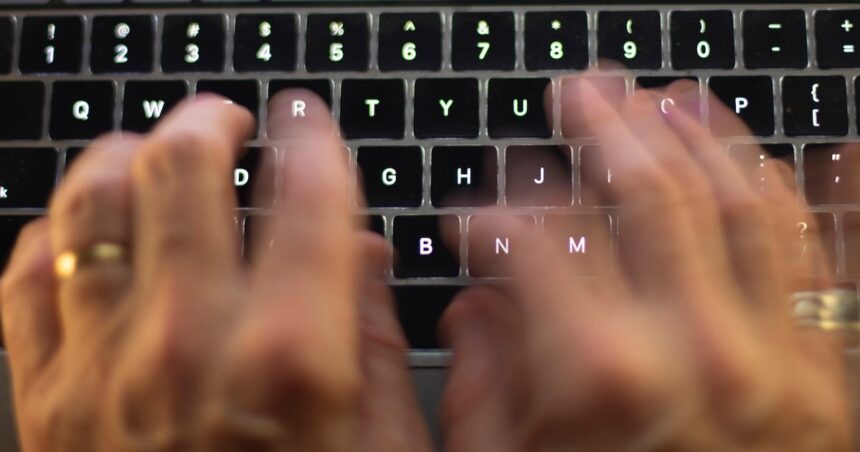Standing on the steps of Montreal’s Phi Centre last Tuesday, more than 300 Quebec artists united in a rare show of cross-discipline solidarity. Their message was unmistakable: artificial intelligence systems are consuming their work without permission, and the government must step in.
“I discovered my voice was being used to train AI without my knowledge or consent,” explained singer-songwriter Ariane Moffatt, whose distinctive vocals have become a staple of Quebec’s cultural landscape. “This isn’t just about compensation—it’s about the fundamental right to control how our creative expressions are used.”
The demonstration marked a pivotal moment in Quebec’s emerging battle over AI and copyright—a conflict brewing since generative AI tools like Midjourney, ChatGPT, and various music generators began digesting vast libraries of human-created content to produce their outputs.
What’s striking about this coalition is its breadth. Film directors stood alongside visual artists, musicians next to authors. Their unity underscores how AI’s challenges to copyright cut across creative fields. From the filmmaker whose visual style is mimicked by an algorithm to the writer whose prose patterns are absorbed into large language models, the concerns transcend traditional industry divides.
The artists’ coalition calls for three concrete measures: mandatory licensing for using copyrighted works in AI training, clear attribution requirements, and a compensation framework that acknowledges creators’ contributions to these systems.
These demands arrive at a critical juncture. The federal government recently launched consultations on regulating artificial intelligence’s impact on creative industries, while Quebec’s provincial government has shown increasing interest in positioning itself as a leader in ethical AI development.
“Quebec has a unique opportunity to establish North American leadership on this issue,” noted filmmaker Philippe Falardeau, whose Oscar-nominated work has brought international attention to the province’s cinema. “We’re not asking to stop innovation—we’re asking for partnership rather than exploitation.”
The concerns extend beyond individual creators to Quebec’s distinctive cultural ecosystem. The province invests heavily in cultural production through tax credits and direct funding, making the public effectively a stakeholder in protecting these works from unauthorized AI exploitation.
Pierre-Luc Delaney, cultural economist at Université de Montréal, puts it bluntly: “When AI companies train on Quebec-subsidized content without permission, they’re essentially transferring public investment into private profit.”
This tension between technology and creator rights isn’t entirely new. The music industry faced similar upheaval with digital downloads in the early 2000s, eventually establishing new compensation models. However, AI presents unique challenges because it doesn’t simply distribute original works—it processes them into systems that can then generate derivative content.
Current copyright frameworks weren’t designed with these capabilities in mind. The concept of “fair dealing” in Canadian copyright law allows limited use of protected works for purposes like research and education, but whether commercial AI training qualifies remains hotly debated.
Some major AI developers have begun pursuing licensing agreements with content owners. Universal Music recently struck a deal with YouTube to license songs for AI training, while Adobe’s Firefly image generator trained exclusively on licensed content and public domain works.
These approaches suggest the industry may be moving toward more creator-inclusive models, but many artists remain skeptical about whether voluntary measures will suffice.
“We’ve seen the tech sector promise fair treatment before, only to create monopolies that squeeze creators,” observed novelist Dominique Fortier, whose historical fiction has garnered multiple literary prizes. “Without regulatory guardrails, history suggests power imbalances will prevail.”
The economic stakes are substantial. Quebec’s cultural industries generate over $12.8 billion annually and employ roughly 166,000 people, according to recent provincial data. If AI systems undermine the viability of creative careers, the ripple effects could destabilize this sector.
Meanwhile, AI companies point to the transformative potential of their technologies for creativity itself. Many tools are marketed as assistants rather than replacements, potentially expanding what human creators can accomplish.
“There’s room for both human creativity and AI augmentation,” argued Gabriel Basque of Montreal-based AI startup Lyrebird Creative. “But that future depends on building systems that respect creator rights from the ground up.”
The provincial government has acknowledged these concerns but hasn’t yet committed to specific regulatory measures. Culture Minister Mathieu Lacombe met briefly with demonstration organizers, promising to “carefully consider their proposals” while balancing innovation needs.
As federal consultations continue through spring, Quebec creators hope their provincial government will champion their cause nationally. The province’s distinct legal system and strong cultural protections could provide leverage for establishing precedent-setting policies.
For artists like Moffatt, however, the issue transcends policy details: “This is about whether we value human creativity enough to protect it. If we don’t, we risk allowing something precious and distinctly human to be commodified and ultimately diminished.”
Whether Quebec becomes a testing ground for a new creator-AI relationship remains to be seen. What’s clear is that the province’s artists have moved the conversation beyond academic discussion into a full-fledged movement—one that may shape how we balance technological progress with creative rights for years to come.






